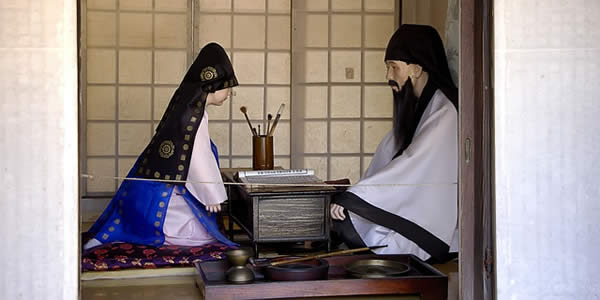I think a lot about about the subject of mentoring, being both student and teacher. I have learned tremendous amounts from some of my own mentors, and I have also had things go horribly wrong with others.

Right now, as I write this, I am on a bus between Chicago and Madison, WI. A family member and magical mentor was diagnosed with advanced cancer. For the first week, her kidneys were failing and she was doing very badly. When she was coherent enough to talk, she asked her daughter to call me and asked me to do as much protection and healing work as I could. I didn’t hesitate. I booked the trip at the earliest time I could leave. Hours after I did the work, her condition stabilized, although the underlying cancer is something that she and I are going to have to talk about and what she honestly wants to do from here.
From a general societal expectation model, that sounds like it is the right thing to do, I know. But what if I told you that this mentor and family member failed to pay back a loan of several thousand dollars made many years ago? Would that change your opinion? Should it? Mentorships are always tricky relationships to manage, providing many difficult waters for both mentor and mentee to navigate.
Even though, as a chaos magician, I may switch paradigms and beliefs strategically and as it suits the need, I can tell you that originally, I cut my magical teeth under the tutelage of my family with a hard polytheist mind set that is entirely shamanic (with one exception). Like the “Molfar” of Ukraine, we were taught to have deep personal relationships with the elements and the spirits. While I will certainly acknowledge other perspectives, I am assuming a perspective close to this underlying belief in this article, where both magic and spirits are imminent. You can boil this attitude down to “Magic is real and it can bite.” For those of you who have been practicing awhile, you probably well familiar with what I mean by saying it can bite.

Magical mentors are, of course, a controversial topic. Once you assume that magic can bite and that things are not “just” inside of your head or simply Jungian projections, mentors seem to become a pretty good idea. Why? In the longer term, a mentor can (and should) help to guide you down the proverbial paths where a person can easily get lost. Mentors have often experienced tremendous pain along these paths, and (if you listen carefully) they can help you avoid similar situations and pain.
In other cases, it is simply not possible to form relationships with certain classes of spirits without an introduction from a living human. In most cases, relationships with spiritual forces does tend to go a lot more smoothly with an introduction from a living human, and some magical operations are far more effectively taught via person to person interaction where one can receive verification of progress. When you can learn the techniques directly and ask your mentor questions, the process speeds the actual learning and acquisition of your growth by tremendous amounts.
Of course, the bad side is that the power differential between mentor and mentee tends to build in a natural source of conflict that is rarely acknowledged. In the worst cases, that power differential is used in a way that divests the student of their dignity. I have heard stories of initiators in the African Traditional religions that would do horrible things to people both magically and physically, often for extreme amounts of money. I know people who have similar stories from India relative to the guru model where after they had given thousands of dollars to the guru, they had learned nothing. The stories of Wiccan leaders using their position to secure sex are common place. In Western culture, we have been well “conditioned” to distrust the mentor model in favor of a radical individualism. I will get to that in a minute as well.

In the average case, students often feel constrained by their mentors. Perhaps they want to try magic that their mentor does not think they are ready for, or the mentor asserts strong moral pressures that the student balks at, or perhaps the mentor simply does not know what or how to teach the student anymore. There often comes a point in the relationship where neither party knows what to do from there.
When I sit at my ancestor altar, I am often reminded of how mentorship relationships should work. I love my ancestors, though they are far from what we would call “nice” or “passive”. I have had situations that, to be blunt, were magically risky where my ancestors would go so far as to summon darker entities. Why would they do that? Because they love me and they wanted to make sure I could deal with those types of spirits and in a controlled setting. When I think of the hell I (routinely) put some my students through, I can say that I am probably not “nice” either, but they learn a hell of a lot. Sometimes, the lead-in that is needed for spiritual alchemy is pain.
We have to realize that the traditional misconception of the mentor-student relationship tends to be more like “master-student”. It is far closer to a demand of absolute compliance in many circles but there is often a secret wish of power over someone that is so tempting to an unpolished mentor or guru. Those authoritarian impulses and power over someone is seductive, corrupting, and difficult to manage for many.
We expect our spiritual “leaders” to beyond those petty emotions, but let me assure you, as you gain more of what my ancestors might call “real magical power”, that temptation is there. “Spiritual leaders” tend to exacerbate this issue even more by using fear to back up what you can and cannot do. These edicts again are the seductive call of authoritarianism.
While few authors or leaders would admit it in this type of public forum, let’s be honest that that sort of respect and adoration feels really good to the ego. And, if you ignore the responsibility aspects of the relationship, that adoration is easy.

Then we get to the “teen years” of the mentor-student relationship. The budding challenges to the mentor’s authority as the student gains skill and wants to start asserting their independence, “testing their wings.” In many cases, the dire warnings of the mentor simply do not happen. The student does the “forbidden act” and very little happens or the student gets really good results. Each step in that direction reduces the mentor’s credibility. The relationship degrades, much like that of a parent and child at the onset of the dreaded “teen years.” After all, the mentor is supposed to know everything. The mentor is supposed to always be right. The mentor is not supposed to be affected by adoration. The mentor is not supposed to so influenced by money. The mentor is supposed to be above their physical needs, after all they are spiritual mentors. Does any of these sound like something that went through your head at any time?
You can bet all of these ideas are part of the problem. All mentors are human beings, and with their own personal mix of human failings and flaws that come with that humanity. Sometimes those flaws are so severe that you should not be in a relationship with them at all. Often, however, it is the expectation of “perfection” or “higher” spirituality that destroys the relationship. Even within our interpersonal relationships and friendships, the idea underlies our culture that if a friendship or romantic connection, or even family connection is too difficult, well there are other people just around corner (and there is always another corner).
Let’s be honest, we live in a disposable culture. Elder coven leader says something you don’t like? There are other covens. Authors don’t live up to your expectations? There are other authors. The mentor should be “honored” that the student allows them to teach. The mentor should want to “give” that teaching and their time to you because they are so enlightened. (Nevermind that the mentor has a family to feed and needs to put a roof over their head too.) Could anyone live up to this or even if they could, SHOULD they? Mentors should grow into being part of your family, but ultimately if they are not pissing you off on occasion, they are not doing their jobs and you are probably not learning any hard lessons.
All mentors make mistakes and life is very messy. When I loaned my mentor the money I mentioned earlier, she was buying a house. She struggled deeply with her brother who was a disabled vet who gambled and drank away the money to pay me back. She couldn’t really say no, and when she finally put her foot down, real financial damage had been done. She has a habit to committing to things and just is not reliable about meeting those commitments pretty consistently (a personal pet peeve). After all, she just doesn’t want to say no to anything or hurt anyone’s feelings. Sometimes she does things to help people that end up hurting her in the long run, and sometimes hurt the relationships she cares about. Some of those traits infuriate me, and yet here I am, still on a bus to Madison, WI on the weekend before my finals in my MBA program using vacation time to be here.
So many people base the continuation of a relationship with someone through the question based lens of “what have you done for me in the last five minutes?” that they fail to experience long term relationships like this. Of course, these tendencies carry on into working with spirits and magic. When spirits watch us, why would they be interested in actually helping or creating miracles for someone who would turn around and throw them away? Some spirits might look toward people they can easily take advantage of and easily dupe. I know, gods forbid, that a magician actually speak the words that some spirits actually are human-unfriendly in some ways. In both good and bad ways, the mentoring process not only shows you many sides of the spiritual world, it also shows the spiritual world many sides of YOU.
I have certainly been on the bad side of mentoring relationships, both mentoring and mentee. I have had mentors so abusive because of their own personal limitations that they would destroy any good-will they had in the community and destroy their own livelihood as well. The worst of that kind of situation is when they try to destroy your livelihood too. On the flip side, I have had mentors that have been in my life for a limited period of time, but are still friends. I have had students so toxic that they would blame the mentor for everything bad that happened in their life, and I have had students so over willing to throw them selves at the altar of servitude that I’ve had to rein them in for their own wellbeing. As it is in the human world, so it is in the spiritual world.
In each case, you have to realize a few things about both yourself and your mentor. First, you are both human. You both have flaws. The prison of perfection and false expectations is what facilitates the bad side of mentor relationships. It allows for the idea that there is a better mentor right around the corner. Second, the illusion of perfection or transcended humanity allows people to approach the mentor without proper discernment, or to later lose that sense of discernment.
From the mentor’s perspective, are you (as a student) presenting some sort of value proposition (a win-win game)? Is the mentor’s teaching coming from a place of emotional weakness to build themselves up? Are you receiving the teachings in the spirit of entitlement? What is the actual exchange occurring in the relationship? When the going gets tough, will you stick with this relationship? Once you acknowledge the human side of the mentor, you know there is an exchange occurring and must then decide whether or not this is a relationship that is toxic or one that is mutually beneficial.
Once a mentorship is placed into a spiritual box, how you choose to handle the mentoring relationship can teach tremendous lessons in and of itself. Even bad experiences are teaching opportunities on the road to developing in spirit.
You will learn different lessons in different cases, but sometimes you just need to get on a bus.

Patheos Pagan on Facebook.

the Agora on Facebook
Full Frontal Magic is published on alternate Sundays here on the Agora. Subscribe via RSS or e-mail!
Please use the links to the right to keep on top of activities here on the Agora as well as across the entire Patheos Pagan channel.

















